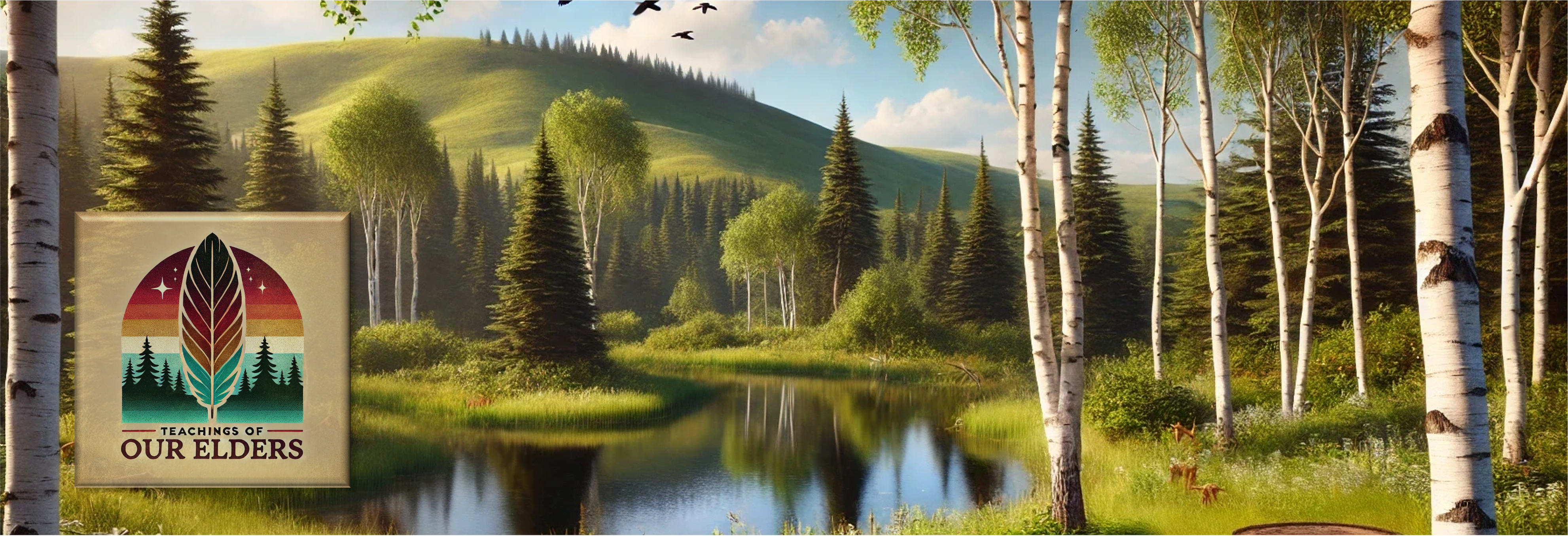| Inquiry Design Model (IDM) Blueprint™ |
| “Iktomi’s Animal Warrior Society” |
| NDNAEU 1 “Sacred Relatives”, NDNAEU 2 “Learning & Storytelling”, NDNAEU 7 “Native Identity” |
| Compelling Question | Thinking of a favorite story you heard or had read to you, what did you learn or remember to do? |
| Standards and Practices | RL.2 Determine a theme of a story, drama, or poem from details in the text. RL3 Compare and contrast two or more characters, settings, or events in a story drawing on specific details in the text. W.4 Produce clear and coherent writing in which the development and organization are appropriate to task, purpose, and audience. W.5 Develop and strengthen writing as needed by planning, revising, editing, rewriting, or trying a new approach. W.8 Recall information from experiences or gather information from print and digital sources; take brief notes on sources and sort evidence into provided categories. SL.1 Engage effectively in a range of collaborative discussions (one-on-one, in groups, and teacher-led) with diverse partners, building on others’ ideas and expressing their own clearly. SL.4 Report on a topic or text, tell a story, or recount an experience with appropriate facts and relevant, descriptive details, speaking clearly at an understandable pace. SL.6 Speak in complete sentences when appropriate to task and situation in order to provide requested detail or clarification. |
| Staging the Question | Why do characters in memorable stories have special or important traits? |
| Supporting Question 1 | Supporting Question 2 | Supporting Question 3 |
| Listen carefully, what details does this story tell you; help you to remember? | How do stories and legends help us remember, understand, learn and/or solve problems in the world? | How can stories model positive interactions? |
| Formative Performance Task | Formative Performance Task | Formative Performance Task |
| Students will: • Watch video, The Story of Coyote & Fox • Use think-pair-share activity to discuss o actions they remember from the story o sights, sounds, smells, feels, tastes they remember o players and roles they remember • Draw a scene from the story illustrating at least one action, sense and player • Discuss what actions In this story needs to be remembered. Why? • Take notes to record whatever each feels is important from the discussions | Students will: • Review notes from previous activity • Watch video Iktomi and the Animal Warrior Society • Discuss the story paying attention to o Characters and their special traits o Setting o Reasons for the actions o Important events o Why was this story told? • Using notes and discussions decide on their own personal gift, ability—what makes them special. • Write a short paragraph describing your special talent and how you can use it to solve or prevent a problem from happening. | Students will: • Talk to a friend nearby about the things you are both good at. Come up with one or two things that you do really well. • Each add a sentence to their own paragraph that incorporates this cooperation. • Work with your friend to edit and offer feedback to improve your paragraph. • Together outline a story that includes o Characters and their special traits o Setting o Reasons for the actions o Important events o A moral |
| Featured Sources | Featured Sources | Featured Sources |
| https://teachingsofourelders.org/story-coyote-fox-kathryn-froelich/ | https://www.wolakotaproject.org/iktomi-and-the-animal-warrior-society/ |
| SUMMATIVE PERFORMANCE TASK: Supported Claim (written/spoken) or Demonstration of Process (project-based) | Use outlines; share your story by telling it to the class. |
| SUMMATIVE PERFORMANCE TASK: Extension | Refine the moral, learning point, and write a complete story |
| Taking Informed Action / Real World Application | Talk as a class about the importance of sharing your gifts and talents in the world. Come up with a plan for how each person will work to share their gift or talent to help another person. For example: If someone says they are really good at basketball, they could use that talent to invite another person on the playground to join him or her so he or she won’t be lonely. |

